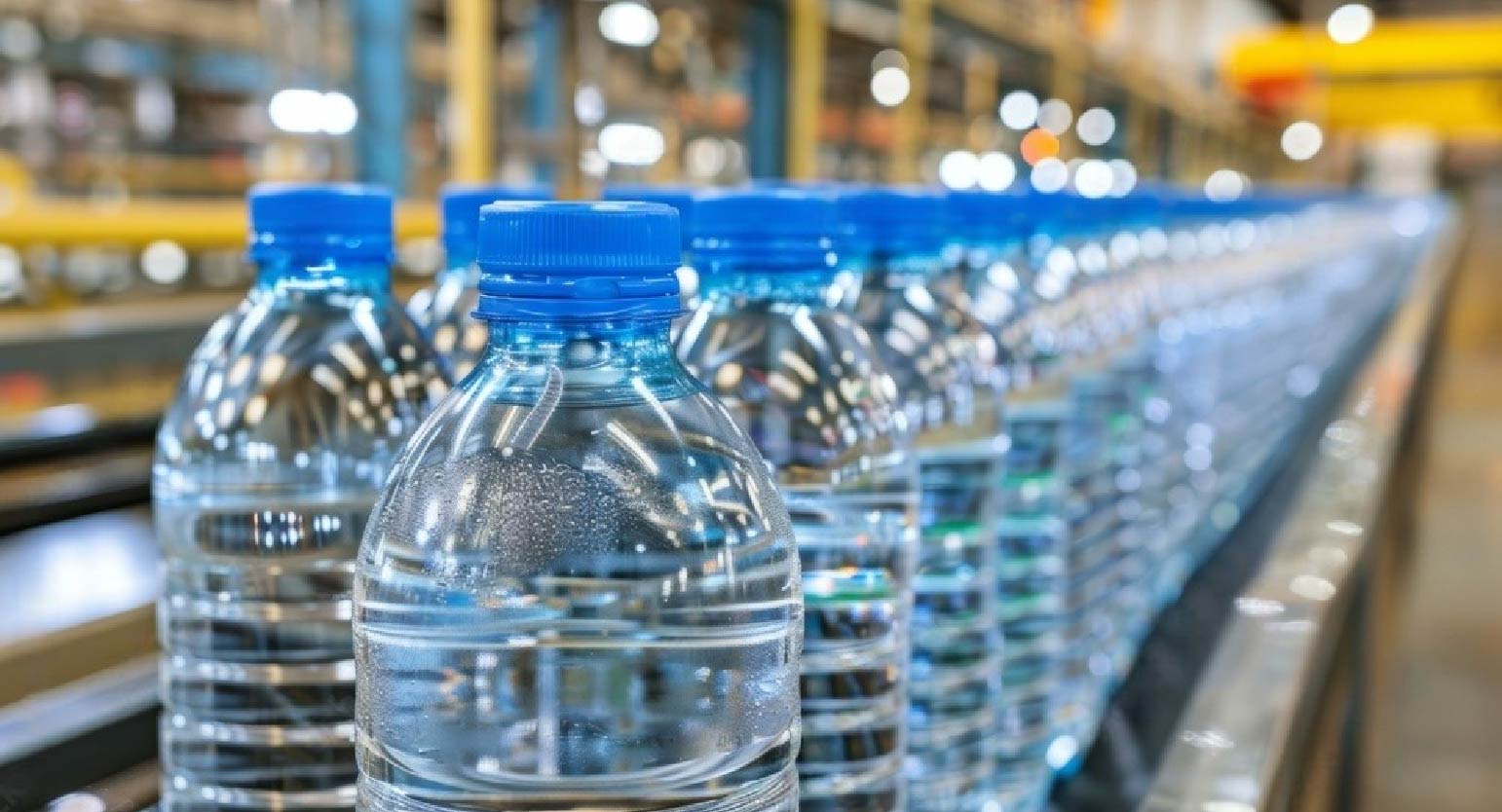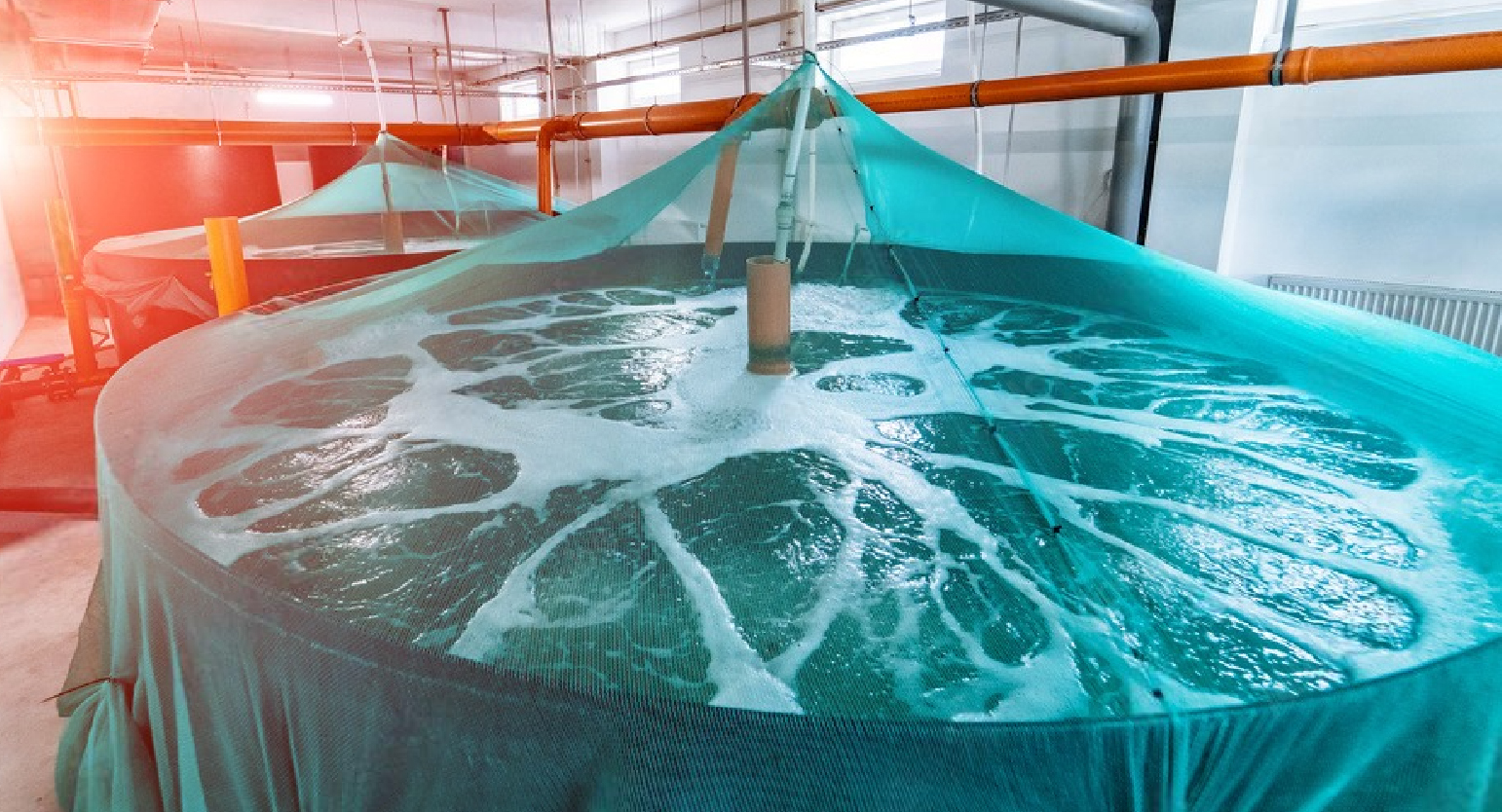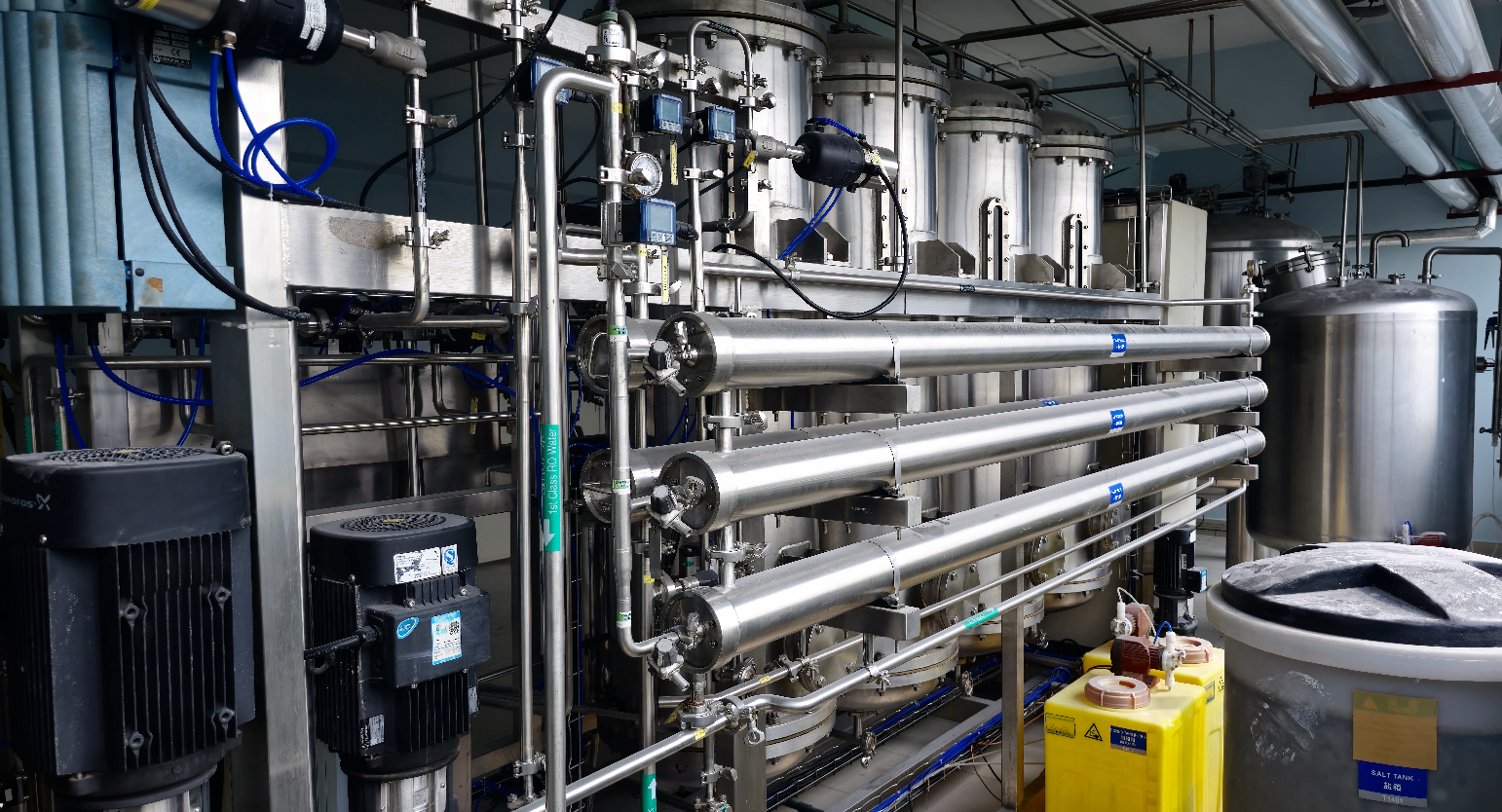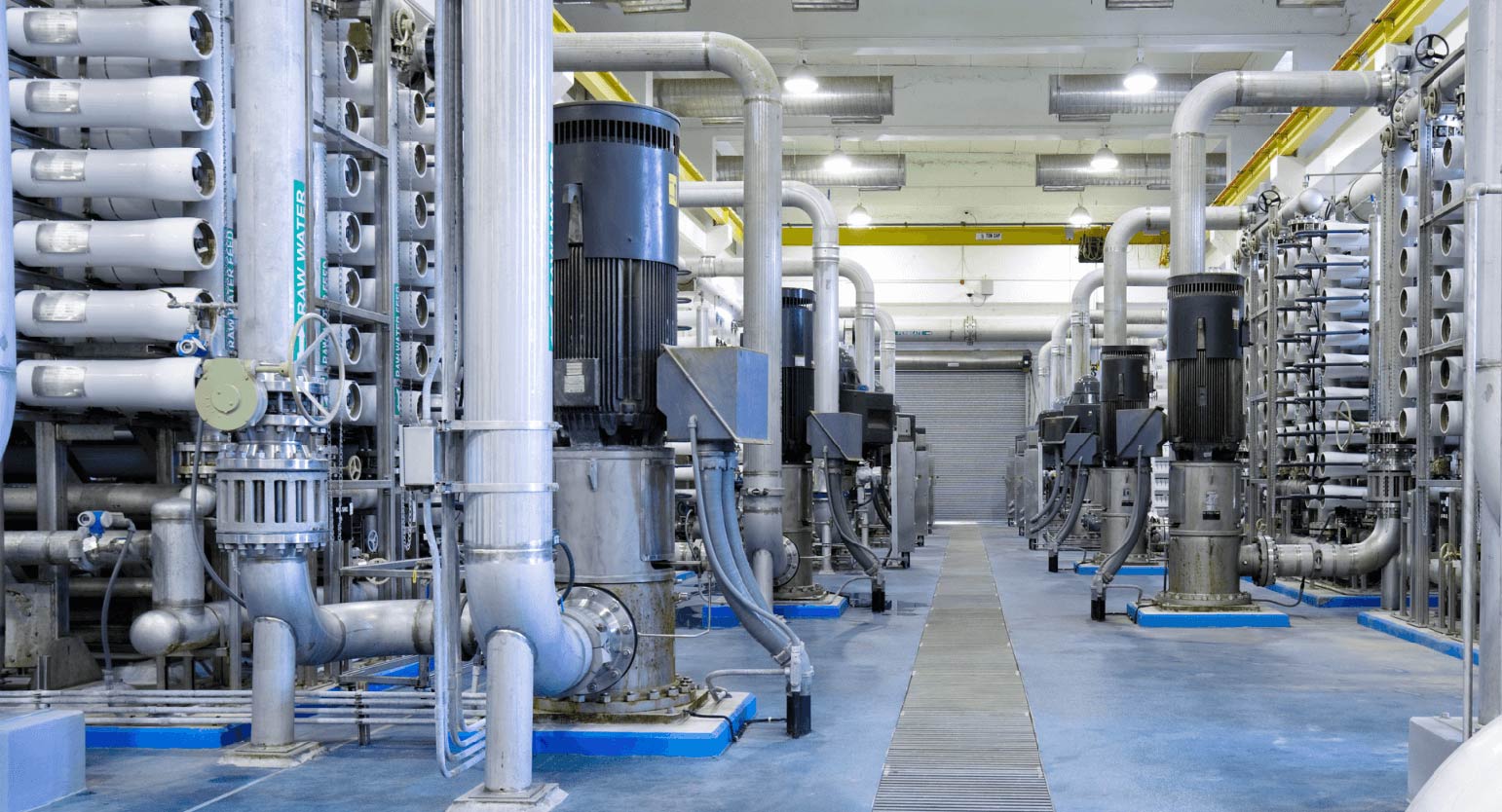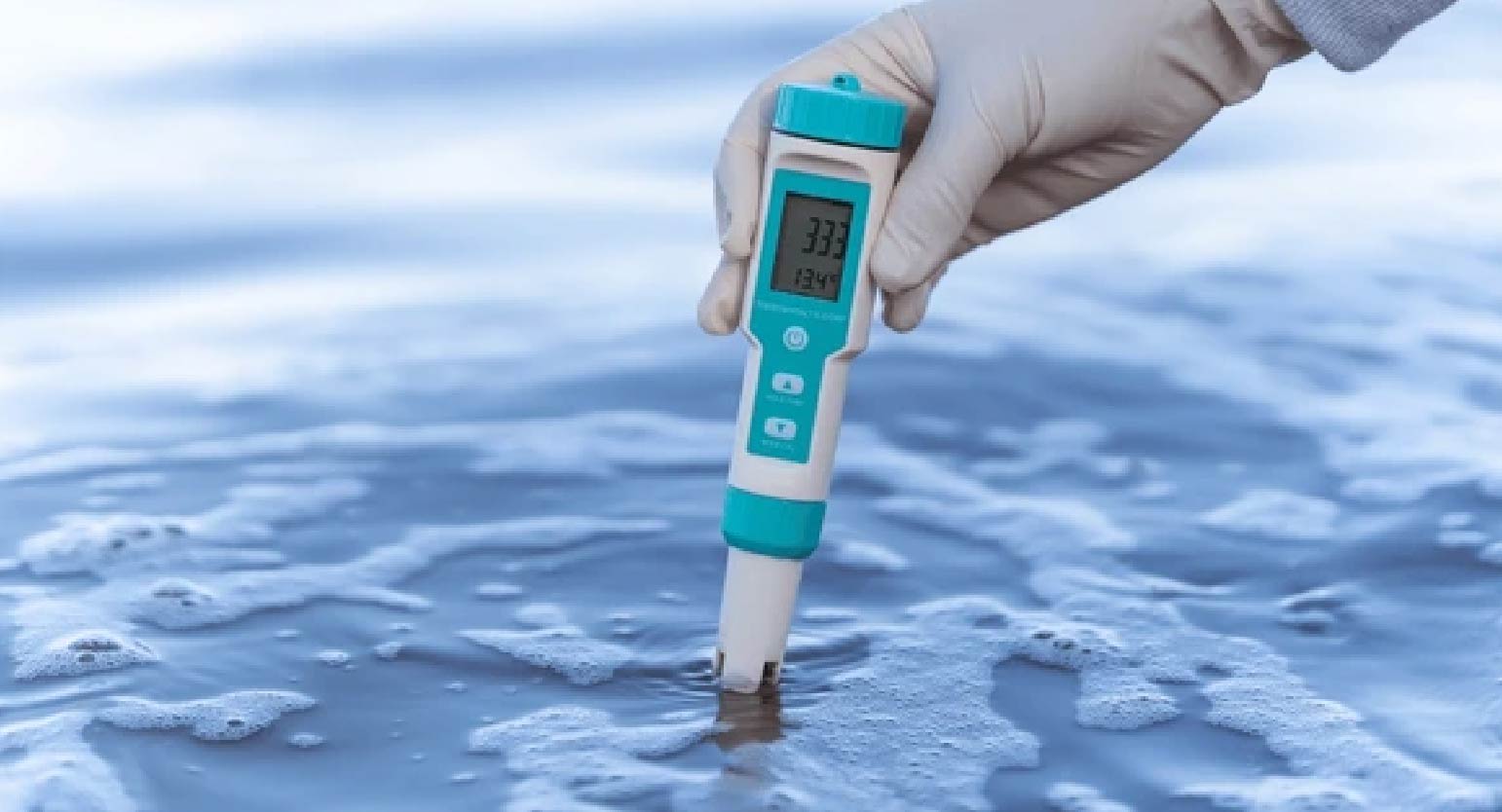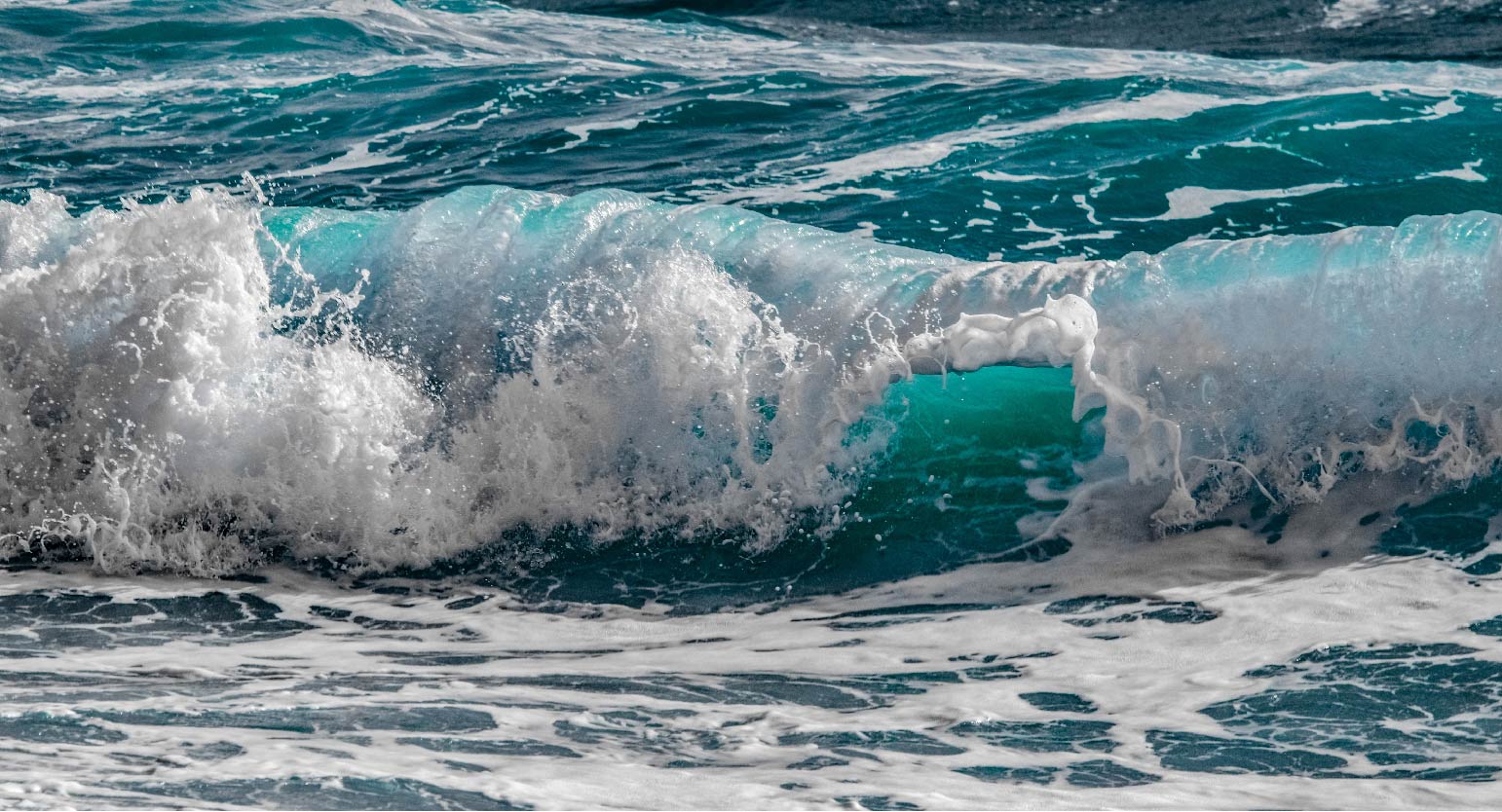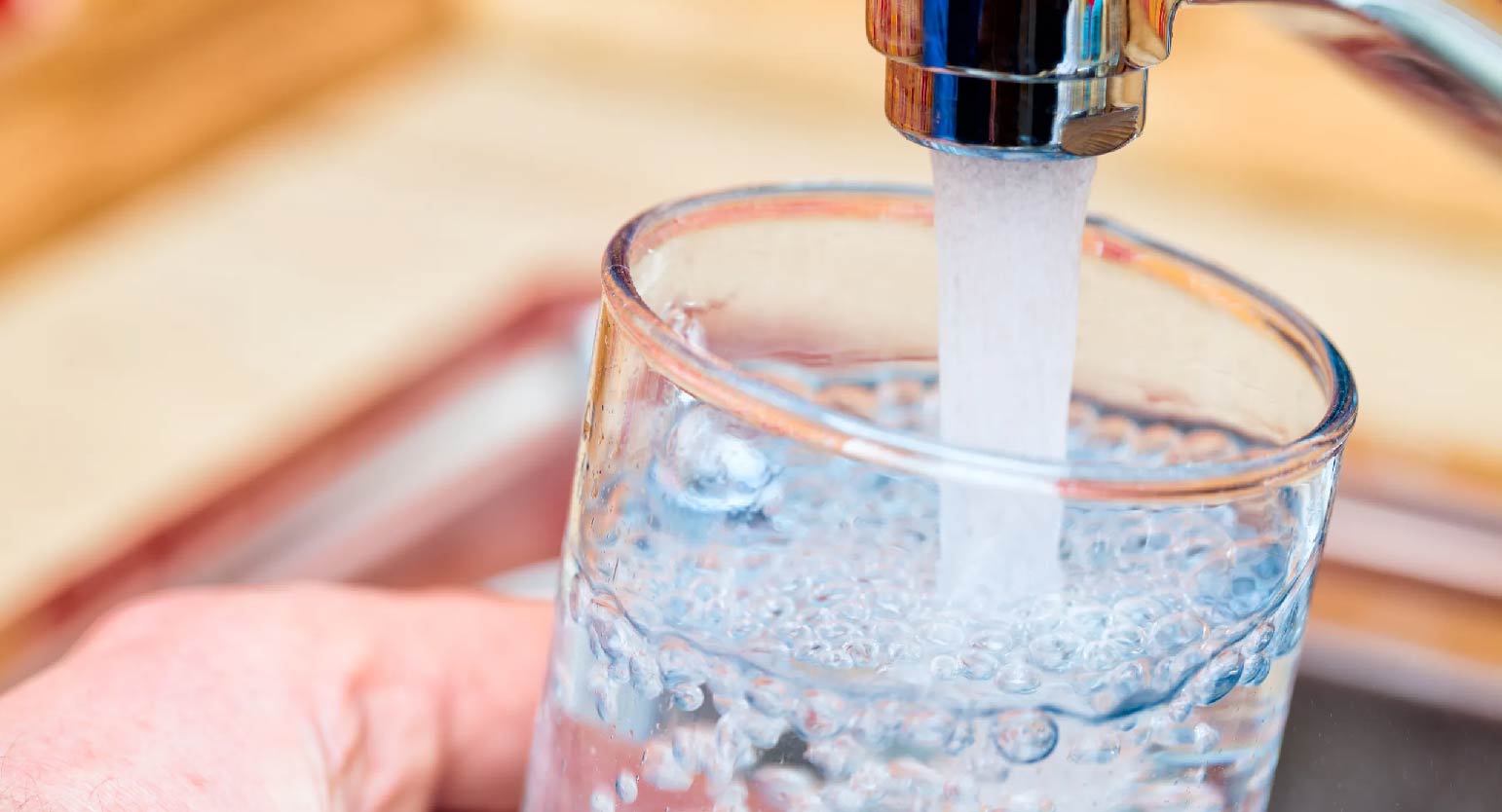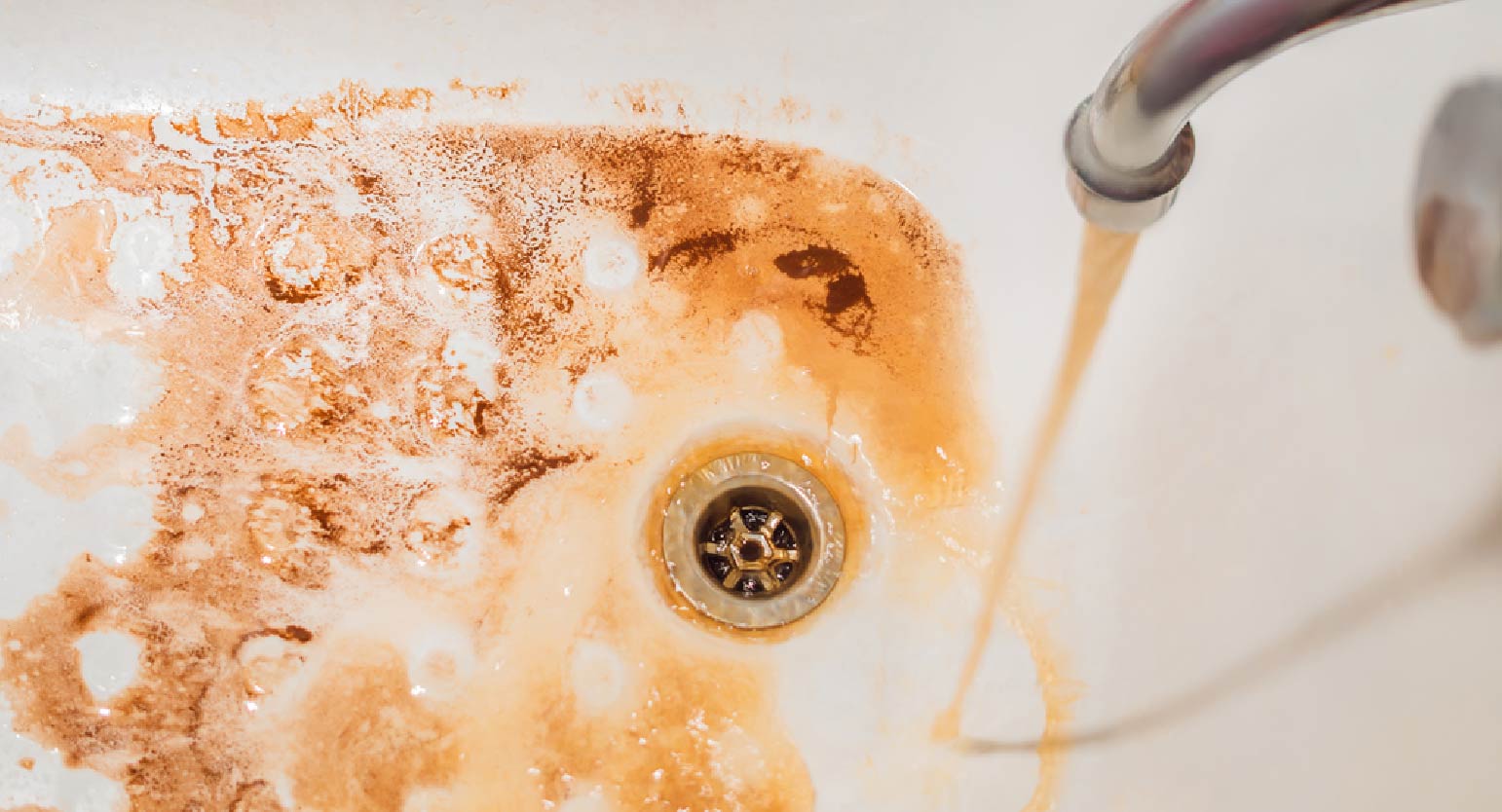Water Hardness and Its Impact on Drinking and Industrial Uses
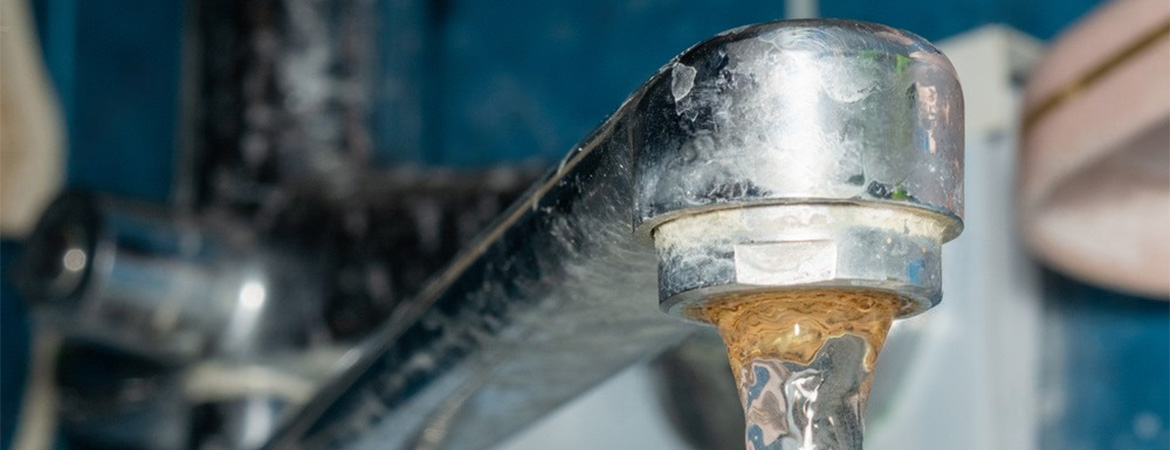
Water Hardness and Its Impact on
Drinking and Industrial Uses
Water hardness is a key parameter in water
quality, affecting both drinking water and industrial processes. It refers to
the concentration of calcium and magnesium salts dissolved in water, which can
have significant implications for household use, health, and industrial
operations.
Definition of Water Hardness
Water hardness is primarily determined by
the concentration of calcium (Ca²⁺) and magnesium (Mg²⁺) ions in water. These
minerals are naturally present in soil and rocks, dissolving into groundwater
as it moves through the earth. The hardness of water is typically measured in
milligrams per liter (mg/L) or parts per million (ppm) of calcium carbonate
(CaCO₃).
Types of Water Hardness
1.
Temporary Hardness:
Caused by the presence of bicarbonate minerals (calcium bicarbonate and
magnesium bicarbonate), which can be removed by boiling the water. Boiling
converts bicarbonates into insoluble carbonates, which precipitate out,
softening the water.
2.
Permanent Hardness:
Caused by the presence of sulfate or chloride compounds of calcium and
magnesium. Unlike temporary hardness, permanent hardness cannot be removed by
boiling and requires chemical treatment or water softening methods.
Causes of Water Hardness
Water hardness occurs naturally as water
percolates through soil and rock, dissolving calcium and magnesium along the
way. Regions with limestone, gypsum, or chalk formations are more likely to
have hard water due to the higher concentration of these minerals.
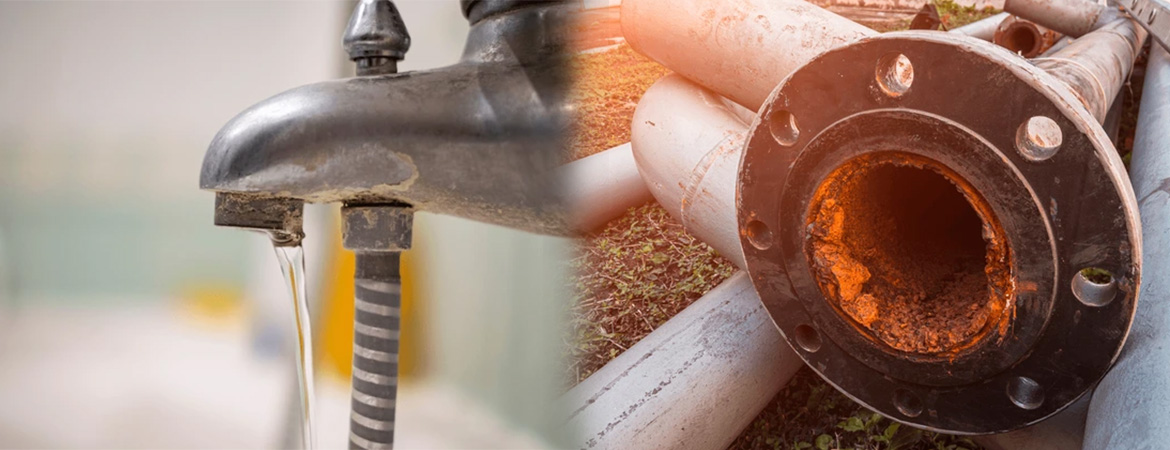
Tolerable Ratio for Drinking and
Industrial Purposes
- Drinking
Water: The World Health Organization
(WHO) recommends that the total hardness in drinking water should be
between 100 and 300 mg/L (ppm) as CaCO₃. Water with hardness above 300
mg/L can be considered very hard, which might cause scaling in pipes,
affect taste, and potentially contribute to kidney stones in sensitive
individuals.
- Industrial
Use: The tolerable hardness levels in
industrial processes depend on the specific application. For instance, in
boiler systems, hardness levels should be kept below 50 mg/L to prevent
scaling and damage to equipment. In cooling systems, higher levels might be
acceptable but still require control to avoid efficiency loss.
Which Ratios Should Be Avoided
- For
Drinking Water: Hardness above 500
mg/L is generally considered undesirable for drinking, as it can lead to
excessive scaling, adversely affect taste, and may contribute to health
issues like kidney stones.
- For
Industrial Uses: Water with hardness
above the recommended levels for specific industrial processes can cause
severe scaling, reduce efficiency, and lead to increased maintenance
costs. For example, in steam boilers, high hardness can lead to scaling
that reduces heat exchange efficiency, leading to higher energy costs and
potential equipment failure.
Conclusion: Managing water hardness is crucial for both residential and industrial applications. At Aquafit Technology, we offer advanced water treatment solutions to manage and reduce water hardness, ensuring optimal water quality for drinking and industrial use. Whether you need water softening systems for your home or industrial-grade solutions for your business, our expertise ensures that you receive the best treatment options available.
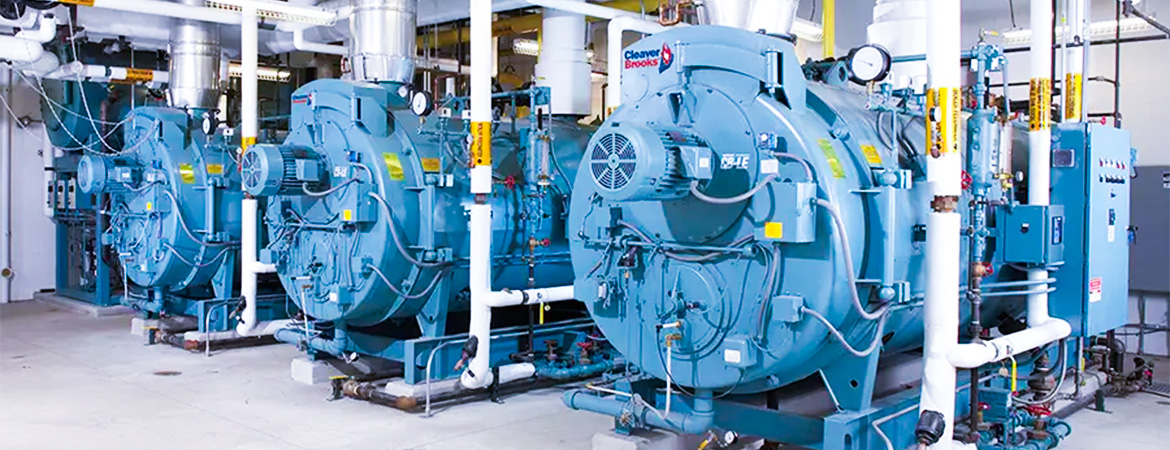
Hardness in Boiler and Cooling Tower
Water
Water hardness is a critical factor in the
operation of boilers and cooling towers. Managing hardness levels in these
systems is essential for maintaining efficiency, prolonging equipment life, and
ensuring safe operation. At Aquafit Technology, we specialize in providing
top-quality softener plants in Bangladesh, helping industries optimize their
water management processes.
Definition of Water Hardness
Water hardness is caused by the presence
of dissolved minerals, primarily calcium (Ca²⁺) and magnesium (Mg²⁺) ions.
These minerals, when present in boiler and cooling tower water, can lead to the
formation of scale—a hard, crystalline deposit that adheres to the surfaces of
equipment, reducing heat transfer efficiency and causing operational issues.
Importance and Demerits of Hard Water
in Boilers and Cooling Towers
- Importance:
Controlling water hardness in boilers and cooling towers is crucial to
prevent scale formation. In boilers, scale reduces heat exchange
efficiency, leading to higher energy consumption and potential equipment
failure. In cooling towers, scale buildup can block pipes and reduce
cooling efficiency, leading to increased operational costs and potential
system downtime.
- Demerits:
If hardness is not properly managed, it can lead to several issues:
- Scaling:
The primary problem associated with hard water is scaling, which can
severely impact the performance of both boilers and cooling towers.
- Corrosion:
Hard water can contribute to corrosion, particularly in combination with
other impurities, leading to leaks and equipment failure.
- Reduced
Efficiency: Scaling reduces
the efficiency of heat transfer, increasing energy consumption and
operating costs.
- Maintenance
Costs: Hard water increases the need
for regular cleaning, descaling, and maintenance, leading to higher
operational costs.
Resources for Managing Hardness in
Boiler and Cooling Tower Water
Managing water hardness requires a
combination of water treatment processes and regular monitoring:
- Water
Softening: Installing a water softener is
the most effective way to remove calcium and magnesium ions from water.
Softening plants use ion exchange processes to replace hardness ions with
sodium ions, preventing scale formation.
- Chemical
Treatment: Anti-scalants and corrosion
inhibitors can be added to water to reduce the risk of scale and corrosion
in both boilers and cooling towers.
- Regular
Monitoring: Regularly testing water
hardness levels ensures that the water treatment processes are working
effectively and that any necessary adjustments can be made in real-time.
Conclusion
Proper management of water hardness in
boilers and cooling towers is essential for maintaining system efficiency,
reducing operational costs, and prolonging equipment life. At Aquafit
Technology, we are the leading provider of water softener plants in Bangladesh,
offering advanced solutions tailored to your specific needs. Our expertise in
water treatment ensures that your industrial processes run smoothly and
efficiently, free from the risks associated with hard water.
Visit our website to learn more about our
water softening solutions and how we can help you maintain optimal water
quality in your boiler and cooling tower systems.

Hardness of Drinking Water and Its
Implications
Water hardness is a significant factor in
the quality of drinking water, affecting both its taste and its suitability for
household use. Managing the hardness of drinking water is crucial for ensuring
safety, comfort, and the longevity of plumbing systems. At Aquafit Technology,
we provide top-tier water treatment solutions in Bangladesh to help you achieve
the perfect balance in water hardness for your home or business.
Definition of Water Hardness
Water hardness is determined by the
concentration of dissolved minerals, primarily calcium (Ca²⁺) and magnesium
(Mg²⁺), in water. These minerals are naturally present in water sources as it
flows through rocks and soil, picking up ions that contribute to water
hardness. Hardness is typically measured in milligrams per liter (mg/L) or
parts per million (ppm) of calcium carbonate (CaCO₃).
Importance and Demerits of Hard Water
in Drinking Water
- Importance:
A certain level of hardness in drinking water is beneficial. Calcium and
magnesium are essential minerals for human health, contributing to bone
strength and metabolic functions. Slightly hard water can also prevent
corrosion in pipes by forming a protective layer inside the plumbing
system.
- Demerits:
Excessive hardness in drinking water can lead to several issues:
- Taste:
Very hard water often has a metallic or bitter taste, which can make it
unpleasant to drink.
- Scale
Formation: Hard water can cause scale
buildup in kettles, pipes, and appliances, reducing their efficiency and
lifespan.
- Skin
and Hair Issues: Hard water can
leave a residue on skin and hair, leading to dryness and irritation.
- Soap
Efficiency: Hard water reacts
with soap, reducing its effectiveness and leading to the formation of
soap scum.
Tolerable Ratio for Drinking Water
The World Health Organization (WHO) and
other health agencies recommend that the hardness of drinking water should be
between 100 and 300 mg/L (ppm) as CaCO₃. Water with a hardness level above 300
mg/L is considered very hard and may cause the issues mentioned above. Water
with a hardness level below 100 mg/L is considered soft, which can be more
corrosive to pipes and less beneficial in terms of mineral intake.
Which Ratios Should Be Avoided
- Hardness
Above 500 mg/L: Water with hardness
levels above 500 mg/L is generally unsuitable for drinking. It can lead to
excessive scaling, unpleasant taste, and potential health concerns,
particularly in individuals prone to kidney stones.
- Hardness
Below 50 mg/L: Very soft water,
below 50 mg/L, can be corrosive and may not provide sufficient minerals,
which are beneficial in moderate amounts.
Conclusion
Managing the hardness of drinking water is
essential for ensuring a balance that promotes health, taste, and the longevity
of your plumbing system. At Aquafit Technology, we specialize in water
softening and treatment solutions, making us the leading provider in
Bangladesh. Our advanced systems help you achieve the ideal water hardness for
your home or business, ensuring clean, safe, and pleasant drinking water.
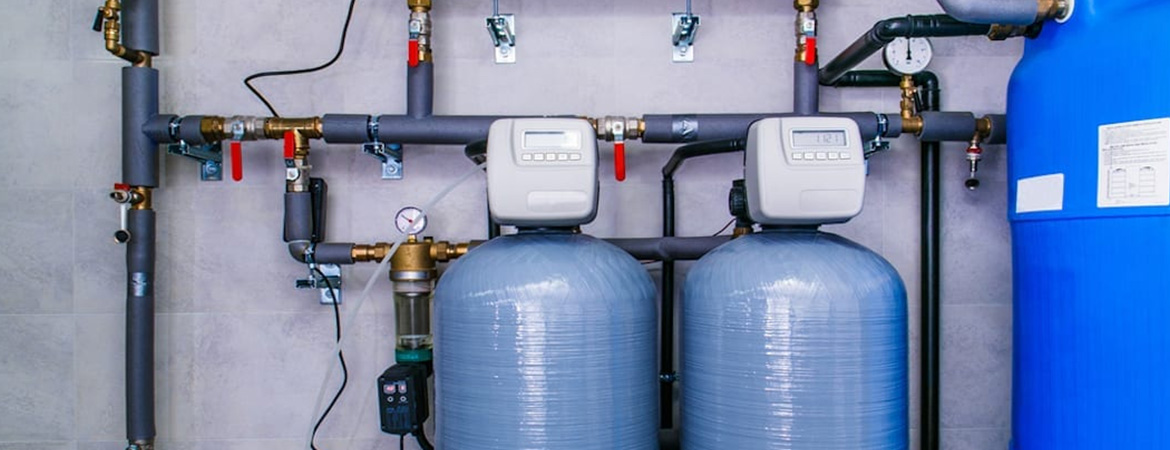
Water Softeners: Enhancing Water
Quality for Your Home and Industry
Water softeners are essential devices that
improve water quality by reducing hardness, a common issue in many water
supplies. Hard water, rich in calcium and magnesium ions, can lead to a variety
of problems in both residential and industrial settings. At Aquafit Technology,
we are proud to be the leading provider of water softening solutions in
Bangladesh, helping you achieve the best water quality for your needs.
What is a Water Softener?
A water softener is a system designed to
remove calcium and magnesium ions from hard water, replacing them with sodium
or potassium ions. This process, known as ion exchange, effectively softens the
water, preventing the negative effects of hardness such as scale buildup,
reduced efficiency of soaps and detergents, and damage to plumbing systems and
appliances.
Why Water Softeners are Important
- Protection
for Plumbing and Appliances: Hard water
can cause scale buildup in pipes, water heaters, and appliances, leading
to clogs, reduced efficiency, and a shortened lifespan of these systems. A
water softener prevents this buildup, ensuring that your plumbing and
appliances last longer and perform better.
- Improved
Cleaning Efficiency: Soft water enhances
the effectiveness of soaps and detergents, resulting in better cleaning,
whether you’re washing dishes, doing laundry, or cleaning surfaces. It
also prevents soap scum and hard water stains, making household chores
easier and more efficient.
- Healthier
Skin and Hair: Hard water can
leave a residue on skin and hair, causing dryness and irritation. Soft
water, on the other hand, is gentler on the skin and hair, leading to a
more pleasant bathing experience.
- Cost
Savings: By preventing scale buildup and
improving the efficiency of cleaning products, a water softener can lead
to significant cost savings on energy bills, maintenance, and the
replacement of appliances and plumbing.
Types of Water Softeners
1.
Salt-Based Ion Exchange
Softeners: The most common type, these systems use
sodium chloride (salt) to exchange hardness ions (calcium and magnesium) for
sodium ions, effectively softening the water.
2.
Salt-Free Water
Softeners: These systems use a process called
template-assisted crystallization (TAC) to condition the water, preventing
scale without adding sodium to the water. While they don’t remove hardness
minerals, they change their structure to prevent scale formation.
3.
Dual-Tank Softeners:
Ideal for larger households or continuous operation, these systems feature two
tanks, ensuring that soft water is always available, even during regeneration
cycles.
Aquafit Technology: Your Trusted
Water Softener Provider
At Aquafit Technology, we offer a wide
range of water softening solutions tailored to meet the specific needs of both
residential and industrial clients. Our water softeners are designed to provide
you with the highest quality water, ensuring the protection of your plumbing
systems, appliances, and overall well-being. As the best water softener plant
provider in Bangladesh, we are committed to delivering reliable, efficient, and
cost-effective solutions for all your water treatment needs.
Conclusion
Investing in a water softener is a smart
decision for anyone dealing with the challenges of hard water. Whether you’re
looking to protect your home’s plumbing, enhance your cleaning routine, or
ensure the efficiency of industrial processes, Aquafit Technology has the
expertise and solutions you need. Our water softeners provide long-term
benefits, improving water quality and offering peace of mind.
Visit our website to explore our range of
water softeners and discover how Aquafit Technology can help you achieve the
ideal water quality for your home or business.
Water Softener Media: The Key to
Effective Water Softening
Water softener media is the core component
of a water softening system, playing a crucial role in the ion exchange process
that removes hardness minerals from water. Selecting the right media is
essential for the efficiency and longevity of your water softening system. At
Aquafit Technology, Bangladesh's leading provider of water treatment solutions,
we ensure that our water softeners are equipped with high-quality media for
optimal performance.
What is Water Softener Media?
Water softener media refers to the resin
beads inside the softener tank that facilitate the ion exchange process. These
beads are typically made of polystyrene and are coated with a layer of
divinylbenzene, which creates a negative charge. This charge attracts and holds
onto positively charged hardness ions—calcium (Ca²⁺) and magnesium (Mg²⁺)—as
water passes through the resin bed.
How Does Water Softener Media Work?
The media inside the water softener
operates on the principle of ion exchange. As hard water flows through the
resin beads, the calcium and magnesium ions are attracted to and held by the
resin. In exchange, sodium or potassium ions, which are less likely to cause
scale buildup, are released into the water. Over time, the resin becomes
saturated with hardness ions and must be regenerated using a salt solution that
flushes out the calcium and magnesium, recharging the resin with sodium or
potassium ions for continued use.
Types of Water Softener Media
1.
Standard Ion Exchange
Resin: This is the most commonly used media in
water softeners. It effectively removes hardness minerals through the ion
exchange process, providing reliable softening performance for both residential
and industrial applications.
2.
Fine Mesh Resin:
This type of resin has a smaller bead size, which increases its surface area,
making it more effective at removing iron and other contaminants in addition to
hardness. Fine mesh resin is ideal for areas with high iron content in water.
3.
Salt-Free Media:
Although not a traditional resin, some water conditioners use salt-free media
to alter the structure of hardness minerals, preventing scale formation without
removing the minerals from the water. This is an option for those seeking an
alternative to salt-based systems.
4.
Resin for High-Capacity
Softeners: In industrial applications, high-capacity
resin is used to handle larger volumes of water with higher hardness levels.
This type of resin is designed to offer extended service life and efficient
regeneration cycles.
Importance of Quality Media in Water
Softeners
The quality of the media in your water
softener directly impacts the system’s efficiency, longevity, and the quality
of water it produces. High-quality resin ensures:
- Effective
Hardness Removal: Quality resin
effectively removes calcium and magnesium, ensuring soft water for your
home or business.
- Longer
Service Life: Durable media
resists degradation, providing consistent performance over a longer
period.
- Efficient
Regeneration: High-quality resin
requires less frequent regeneration, saving on salt and water usage, and
reducing operational costs.
Aquafit Technology: Your Source for
High-Quality Water Softener Media
At Aquafit Technology, we understand the
importance of using the best water softener media for effective water
treatment. Our systems are equipped with premium resin that guarantees optimal
performance, whether for residential or industrial applications. As
Bangladesh’s leading water softener plant provider, we are committed to
delivering reliable, efficient, and high-capacity water softening solutions
tailored to your needs.
Conclusion
Choosing the right water softener media is
essential for achieving the best results from your water softening system.
Whether you need a standard resin for household use or high-capacity media for
industrial applications, Aquafit Technology provides the best solutions in
Bangladesh. Trust us to supply your water softener with top-quality media that
ensures the longevity and efficiency of your water treatment system.
Visit our website to learn more about our
water softening solutions and how Aquafit Technology can help you achieve
superior water quality.
Water Softener Plants: Why They
Matter and How Aquafit Technology Leads the Way
Water softener plants are crucial for
treating hard water in residential, commercial, and industrial settings. These
plants ensure that water is free from hardness-causing minerals like calcium
and magnesium, preventing the many issues associated with hard water. Aquafit
Technology, a leading water treatment provider in Bangladesh, offers
state-of-the-art water softener plants designed to meet diverse water treatment
needs.
What is a Water Softener Plant?
A water softener plant is a large-scale
water treatment system designed to remove hardness from water, typically for
industrial or large residential applications. These plants use ion exchange
technology to replace calcium and magnesium ions in the water with sodium or
potassium ions, effectively softening the water. This process helps prevent
scale buildup, improves the efficiency of water-based systems, and extends the
lifespan of plumbing and appliances.
Importance of Water Softener Plants
- Protection
of Equipment and Infrastructure:
Hard water can cause significant scale buildup in industrial equipment,
boilers, and cooling towers, leading to decreased efficiency, increased
energy consumption, and costly repairs. A water softener plant prevents
these issues, ensuring smooth operations and reducing maintenance costs.
- Enhanced
Water Quality: Soft water is
essential for industries that rely on high-quality water for production
processes, such as food and beverage manufacturing, pharmaceuticals, and
textiles. Softened water improves product quality and consistency, leading
to better end products.
- Cost
Savings: By preventing scale and
reducing the need for frequent maintenance and repairs, water softener
plants help save on operational costs. Additionally, the extended lifespan
of equipment and plumbing translates to long-term financial benefits.
- Environmental
Benefits: Water softener plants
contribute to environmental sustainability by reducing the need for harsh
chemical cleaners and scale inhibitors, which can be harmful to the
environment.
How Water Softener Plants Work
Water softener plants operate on the same
ion exchange principle as smaller water softeners but on a much larger scale.
The process typically involves:
1.
Pretreatment:
Water is prefiltered to remove larger particles and impurities, preparing it
for the softening process.
2.
Ion Exchange:
The pretreated water flows through a resin bed where hardness ions (calcium and
magnesium) are exchanged with sodium or potassium ions. This softens the water,
making it suitable for industrial or residential use.
3.
Regeneration:
Over time, the resin becomes saturated with hardness ions and needs to be
regenerated. A brine solution flushes the resin bed, removing the hardness ions
and recharging the resin with sodium or potassium ions for continued softening.
Aquafit Technology: The Leading
Provider of Water Softener Plants in Bangladesh
Aquafit Technology is renowned for
providing high-quality water softener plants tailored to the specific needs of
various industries and large residential complexes. Our plants are designed to
handle large volumes of water efficiently, ensuring reliable and consistent
softening performance. We use the latest technology and high-quality materials
to deliver water softener plants that are durable, efficient, and
cost-effective.
Conclusion
Investing in a water softener plant is
essential for industries and large residential areas dealing with hard water
issues. These plants offer significant benefits, including protection of
equipment, cost savings, improved water quality, and environmental advantages.
Aquafit Technology, the best water softener plant provider in Bangladesh, is
committed to delivering top-tier solutions that meet your specific water
treatment needs.
Visit our website to explore our range of
water softener plants and discover how Aquafit Technology can help you achieve
superior water quality for your home or business.
